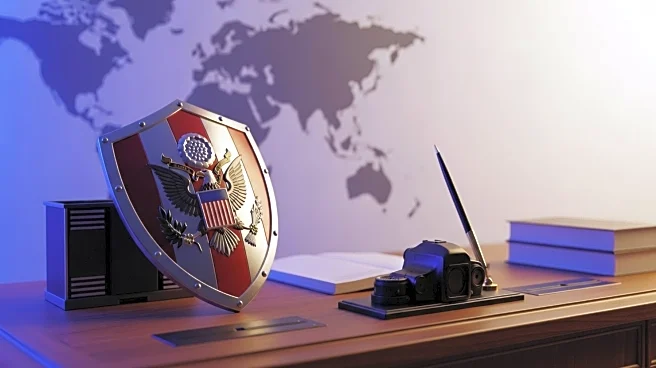What's Happening?
President Trump has signed an executive order committing the United States to defend Qatar's security. This order comes amid heightened regional tensions, with Qatar having been attacked twice by Iran and Israel. The executive order states that any armed attack on Qatar will be considered a threat to U.S. peace and security, and the U.S. will take all necessary measures, including diplomatic, economic, and military actions, to protect Qatar. This move follows Qatar's designation as a major non-NATO ally by the Biden administration in 2022, which granted it enhanced military and defense privileges. Qatar hosts Al Udeid Air Base, a significant U.S. military hub in the Middle East, underscoring the deep security ties between Doha and Washington.
Why It's Important?
The executive order signifies a substantial commitment by the U.S. to a non-NATO ally in the Middle East, potentially altering regional dynamics. Qatar's strategic importance is highlighted by its hosting of Al Udeid Air Base, a key U.S. military installation. The order may reassure Qatar and other Gulf states seeking stronger U.S. security guarantees amid regional instability. It also reflects the U.S.'s broader geopolitical strategy to maintain influence in the Middle East, countering threats from Iran and other regional actors. The commitment could impact U.S. relations with other Gulf states, such as Saudi Arabia and the UAE, who have similarly sought explicit security assurances.
What's Next?
The executive order may prompt diplomatic discussions and negotiations between the U.S., Qatar, and other regional stakeholders. It could lead to increased military cooperation and joint exercises between the U.S. and Qatar. Additionally, the order might influence Qatar's foreign policy decisions, particularly in relation to Iran and Israel. The U.S. may also face pressure to extend similar security guarantees to other Gulf states, potentially reshaping alliances and power balances in the region.
Beyond the Headlines
The order raises questions about the ethical implications of U.S. military involvement in the Middle East and the potential for escalation of conflicts. It also highlights the legal dimensions of international security agreements and the responsibilities of major powers in maintaining regional stability. The long-term impact on U.S.-Middle East relations and the potential for increased military presence in the region are significant considerations.









